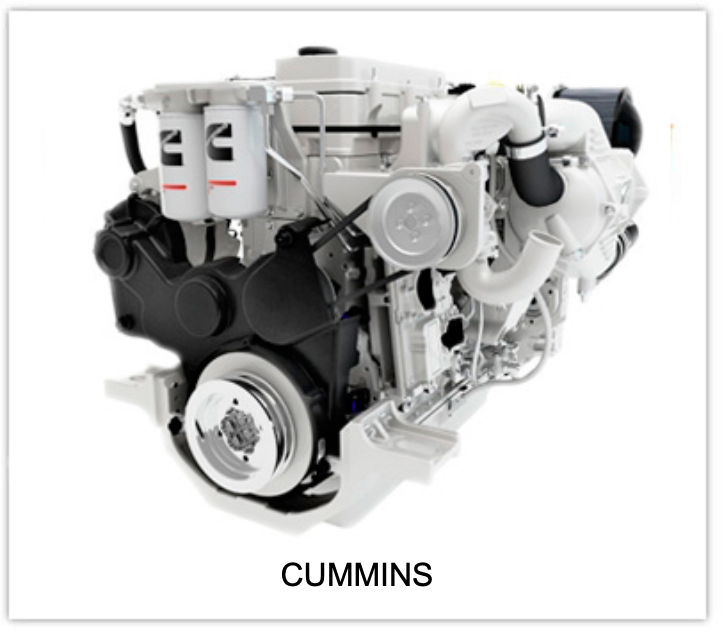
Introduction: What Makes Cummins Engines So Reliable?
Cummins engines are renowned for their reliability and durability. Cummins engines have been in operation since 1919, and the company has consistently produced reliable and efficient diesel engines. Cummins engines have become the preferred choice for many industries, including construction, agriculture, mining, marine, and automotive. Cummins engines provide superior performance and longevity, making them a popular choice for many applications. Cummins engines are designed to be fuel efficient, durable, and reliable. The company utilizes advanced technologies such as high-efficiency combustion systems, electronic fuel injection systems, advanced turbocharger systems, and advanced emission control systems to ensure that their engines are powerful, fuel efficient, and environmentally friendly.
What Benefits Do You Get From Using Cummins Engines?
Benefits of using Cummins engines include:
- Superior performance: Cummins engines have superior horsepower and torque ratings, allowing for increased performance and efficiency.
- Fuel economy: Cummins engines are designed for maximum fuel economy and many models offer fuel savings of up to 20%.
- Reliability: Cummins engines are known for their durability and reliability, with many models having a long service life with minimal maintenance.
- Flexible design: Cummins engines are designed to be easily customized to meet the specific needs of different applications.
- Easy maintenance: Cummins engines are easily maintained in comparison to other engine manufacturers.
Common Problems Faced With Cummins Engines & How To Fix Them
Many of the issues Cummins engines are faced with vary across the several different models of Cummins engines. Typically the most common issues across all of these engines are the following.
Engine Overheating
A faulty water pump, coolant leak, or other failing cooling system components can lead to an engine overheating which can damage other critical components such as the cylinder head, etc. Engine overheating is a frequent issue among diesel engines. It is important to frequently maintenance and inspect your cooling system, especially if these engines are being used on a consistent basis.
Excessive Oil Consumption
This is a common problem with Cummins engines and can be due to either worn components or the incorrect type of oil being used. To fix this, first check the oil level and then inspect the engine for any worn components that need to be replaced. Additionally, make sure the correct type of oil is being used as specified in the owner’s manual and ensure that the engine oil is not contaminated.
Leaking Seals and Gaskets
This can be caused by damaged or worn seals or gaskets, or by incorrect installation. To fix this, replace any worn or damaged seals or gaskets. and make sure that they are correctly installed.
Fuel related issues
A faulty injection pump or fuel transfer pump will make the engine difficult to start or not start at all due to a lack of low-pressure fuel supply and inability to build up enough fuel injection pressure.
Faulty Aftertreatment Devices
For Cummins engines manufactured prior to 2003, these issues do not necessarily apply. Around this time Cummins needed to meet much stricter emissions standards. As a result, Cummins introduced the EGR along with other aftertreatment systems. Till this day, since 2003, there have been frequent problems with the aftertreatment devices for on highway Cummins engines. The most common issues come from the exhaust gas recirculation unit (EGR) and the diesel particulate filter (DPF).
Sensor failure
Faulty engine and emissions related sensors are other common problems with Cummins engines which can lead to lots of downtime and poor performance. These sensors include the following.. temperature sensors, pressure sensors, pressure-temperature sensors, NOx sensors, differential pressure sensors, and O2 sensors.
Comparing the Reliability of Cummins Engines to Detroit Diesel & Caterpillar
Cummins engines have a great reputation for reliability. Generally, they are considered to be just as reliable as Detroit Diesel and Caterpillar engines, with some Cummins engines having higher reliability ratings than others. When comparing Cummins to Detroit Diesel and Caterpillar specifically, it is important to consider the specific model of engine being compared, as well as the type of application the engine is being used for. Depending on the use case, one engine may be more reliable than another. For example, Cummins ISX engines are widely considered to be more reliable than Detroit Diesel Series 60 engines in heavy-duty applications. Overall , a Cummins engine is likely to be more reliable than a Detroit Diesel or Caterpillar engine. Cummins engines are widely considered to be just as fuel-efficient as other diesel engines like Detroit Diesel and Caterpillar. However, it is important to note that some specific models of Cummins engines tend to have higher or lower fuel-efficiency ratings than others, depending on their model and application in the engine.
Conclusion: Why Cummins Engines Are Your Best Choice For Durable & Reliable Performance
Cummins is one of the most reliable diesel engine brands in the world and has been producing durable and reliable engines for over 100 years. Cummins is committed to providing customers with dependable, powerful engines that offer superior performance, fuel efficiency, and reliability. Cummins engines are built to last, with components designed to withstand extreme temperatures and harsh conditions.
Parts Catalog for Cummins Marine Engines
Parts Catalog for Detroit Diesel Engines
Parts Catalog for Caterpillar Marine Engine



 Free US Calls: 1-888-433-4735
Free US Calls: 1-888-433-4735 International: 305-545-5588
International: 305-545-5588